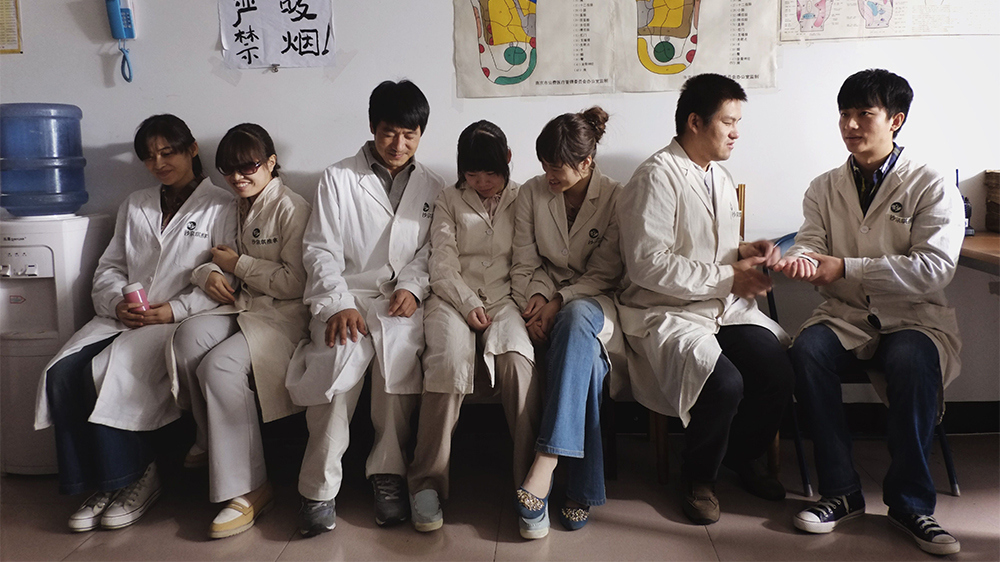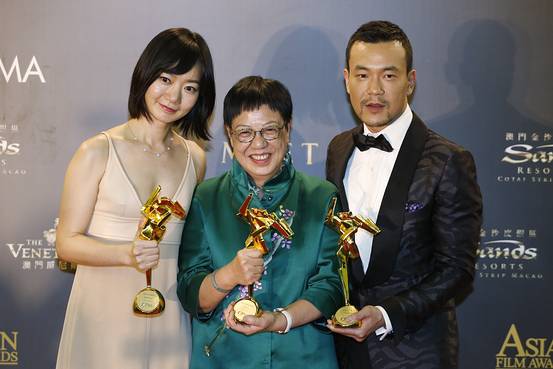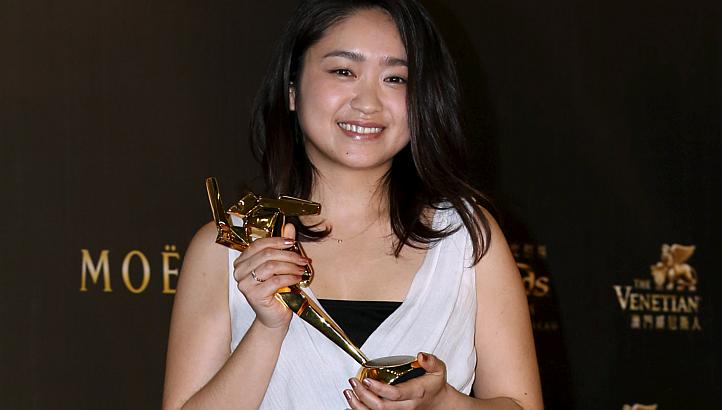FOUNDER OF HANOI FILM HEAVEN REFLECTS ON REEL LEGACY
 Tuesday, November 15, 2016 at 12:51PM
Tuesday, November 15, 2016 at 12:51PM It has been fourteen years of passionate struggle for Gerald Herman. Hailing from upstate New York, the expat director/producer’s nomadic sense of adventure led him to Vietnam where, in 2002, he founded and has programmed the Hanoi Cinematheque ever since. The only venue in the bustling Vietnamese metropolis that has steadfastly adhered to screening classic international cinema, it has remained the ‘best kept secret’ amongst the cinephiles of southeast Asia. “Cinema has always played an important role in Vietnamese society,” says Herman, who spoke to SCREEN-SPACE from his Paris base…
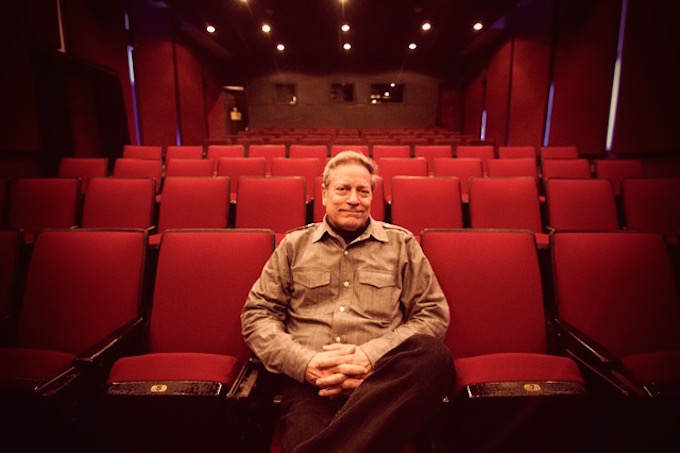
Set well back from the ceaseless din of Hanoi’s busiest shopping district, Cinematheque patrons walk a darkened, enclosed alleyway before emerging into an art-deco themed courtyard. To the left, an elegant bar services the dedicated few attending the Tuesday evening screening of director Trong Ninh Luu’s 1991 rural drama, The Gamble; to the right, the box office beckons, the ambience enhanced by framed posters heralding some cinema classics (our eye is instantly drawn to an original US one-sheet for Michael Cimino’s Heaven’s Gate, one of Herman’s favourite films).
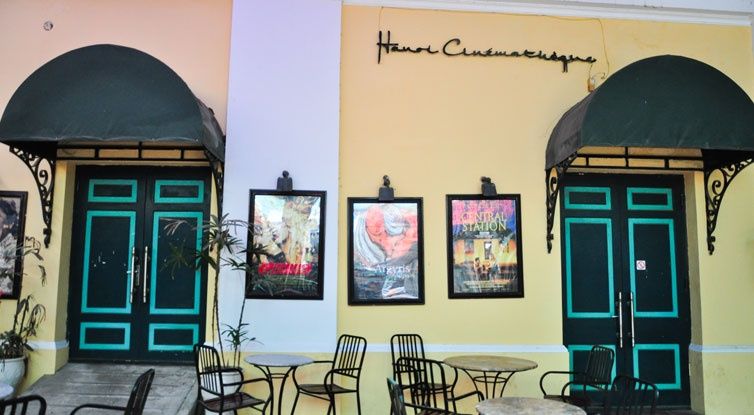 “I set up Hanoi Cinematheque thinking I could educate and inspire a new generation of young Vietnamese filmmakers,” recalls Herman, who now recognises that the birth of the new millennium may not have been the ideal time to launch a celebration of the past. “Young Vietnamese filmmakers were not interested in watching old movies (with so) much new stuff to discover,” he admits, “so we became mostly an expat hang-out, (with) support from foreign embassies in Hanoi, as we do many programs together.”
“I set up Hanoi Cinematheque thinking I could educate and inspire a new generation of young Vietnamese filmmakers,” recalls Herman, who now recognises that the birth of the new millennium may not have been the ideal time to launch a celebration of the past. “Young Vietnamese filmmakers were not interested in watching old movies (with so) much new stuff to discover,” he admits, “so we became mostly an expat hang-out, (with) support from foreign embassies in Hanoi, as we do many programs together.”
Having graduated from the prestigious NYU Film School (under the mentorship of one Martin Scorsese), a three-year stint in the Hollywood trenches followed (he would become the youngest ever director to gain DGA membership) before Herman’s wanderlust took hold. By 1992 he had settled in Vietnam, his passion for film production leading to a 24-year career in the sector. In 2009, he directed the acclaimed short, A Dream in Hanoi (pictured, below left); in 2015, his production Finding Phong was praised for its humanistic study of transgender issues in modern Vietnam.
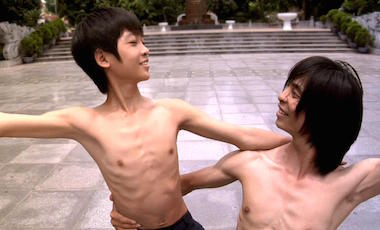 “Making movies in Vietnam is always a challenge, but also rewarding,” he says. “People are keen to help in every way possible, without the kind of salaries one must pay in more ‘developed’ countries. Technical facilities are lacking, but more and more professional services, equipment and people are becoming available.” In addition to his filmmaking endeavours, he has lent his talents to film preservation, including overseeing the digital restoration of Hai Ninh’s landmark 1973 drama Little Girl in Hanoi, in conjunction with the Vietnamese Film Institute.
“Making movies in Vietnam is always a challenge, but also rewarding,” he says. “People are keen to help in every way possible, without the kind of salaries one must pay in more ‘developed’ countries. Technical facilities are lacking, but more and more professional services, equipment and people are becoming available.” In addition to his filmmaking endeavours, he has lent his talents to film preservation, including overseeing the digital restoration of Hai Ninh’s landmark 1973 drama Little Girl in Hanoi, in conjunction with the Vietnamese Film Institute.
Determined to impart this passion and knowledge for global film on the Vietnamese population, Herman spent five years searching for the ideal site for his Cinematheque dream. The Hai Bà Trưng Street building he settled upon was rich in history; in 1954, it had served as the regional headquarters for the Ministry of Culture, before some bawdier times as a massage parlour. “Since the French colonial days, imported films were shown in city cinemas and widely distributed via traveling ciné companies to introduce French culture and life-styles,” notes Herman, who cites the crucial role that film played in unifying the population. “During the war years, locally-produced documentaries and narrative films were effective political and propaganda vehicles.”
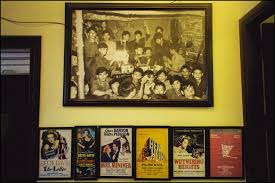 Sadly, time has run out for the Hanoi Cinematheque; its elegant screening room and art deco façade will be demolished by years-end to make way for yet another shopping/parking complex. But Gerald Herman leaves behind a rich cultural legacy; when one glimpses his backroom DVD library, you are struck by what an extraordinarily diverse and complex contribution the Cinematheque has made to Hanoi film society. The walls are lined with over 3500 titles, featuring such names as Sidney Lumet (Prince of The City), Jean-Jacques Beinex (Roselyne and the Lions) and Theodoros Angelopoulos (Ulysses’ Gaze). Across the few days that SCREEN-SPACE was in Hanoi, sessions included Regis Wargnier’s Indochine, Francis Ford Coppola’s Apocalypse Now and Nguyen Viet Linh’s 1988 local industry classic, Travelling Circus.
Sadly, time has run out for the Hanoi Cinematheque; its elegant screening room and art deco façade will be demolished by years-end to make way for yet another shopping/parking complex. But Gerald Herman leaves behind a rich cultural legacy; when one glimpses his backroom DVD library, you are struck by what an extraordinarily diverse and complex contribution the Cinematheque has made to Hanoi film society. The walls are lined with over 3500 titles, featuring such names as Sidney Lumet (Prince of The City), Jean-Jacques Beinex (Roselyne and the Lions) and Theodoros Angelopoulos (Ulysses’ Gaze). Across the few days that SCREEN-SPACE was in Hanoi, sessions included Regis Wargnier’s Indochine, Francis Ford Coppola’s Apocalypse Now and Nguyen Viet Linh’s 1988 local industry classic, Travelling Circus.
Perhaps of even greater resonance will be the bridge that the Hanoi Cinematheque has provided between its members and an array of international artists. Says Herman, “Our very best moments have been hosting local and foreign filmmakers who present their work and then discuss with our audience.” Herman has hosted the likes of Ira Sachs, Philip Noyce, David Bradbury, John Pilger, Les Blank, Dang Nhat Minh, Albert Berger, John Cameron Mitchell, Todd Solondz, Tim Zinnemann, Le Le Hayslip and Jorgen Leth, to name a few.
After years of existing on meagre returns and occasional local business support, Gerald Herman considers the closure of his Cinematheque with melancholy. “Yes, sad indeed,” Herman says, during the course of our chat, “but I am grateful for all the fun and adventures we've had for the past 14 years”.
Read the SCREEN-SPACE World Cinema: Vietnam article here.
 Arthouse,
Arthouse,  Asian Cinema,
Asian Cinema,  Cinematheque,
Cinematheque,  Hanoi,
Hanoi,  Vietnam
Vietnam 